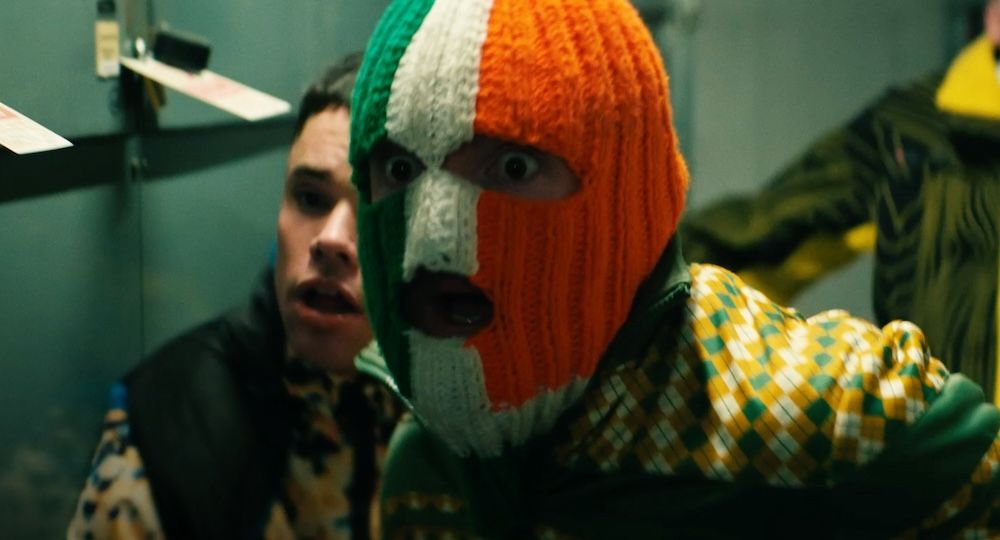
Review: Kneecap (2024)
The unfortunate result of hip-hop’s pop-music domination is that its status as a revolutionary form has become flattened. It’s a globally popular genre sharing stories from the streets. However, in a world this in thrall to identity politics, those streets considered sites of real rebellion must exclusively fit into the framework of what Paul Gilroy deemed the network of The Black Atlantic–a triangulation of influence between North America, England, and Africa that traffics in the oppression of exclusively black bodies. Nevermind that Eminem’s late-90s white rage provided a counternarrative to the prosperity of the Clinton years or that it prophesied MAGA populism, which would have been impossible without the electoral votes in the Detroit rapper’s home state. Even with a resume of always-evolving artistic heights and Dr. Dre collaborations, he’s a cultural appropriator the same as the rest of us.
So when Kneecap, the new biopic about the eponymous Irish-language hip-hop trio, barely made an impact during its wide release earlier this month, its public reception seemed par for the course. Unlike the readily apparent pop subversiveness of Kendrick, Kanye, and Eminem, the comparative politics Kneecap asks of its viewers seemed a bit overwhelming in a climate where the media boils down the recent wave London protests as fueled by the same anti-immigrant sentiments as Brexit and only brown people can lay claim to colonial legacies. Armed with a Sundance audience award, it’s a film that caters to the self-styled enlightened urbanite crowd. Unfortunately, it makes the fatal mistake of nuance and singularity–aesthetically and ideologically at odds with the wave of proselytizing social problem pablum that has come to define the type of movies that debut at America’s most renowned film fests. As the all-too-rare movie that figures out how to make its audience both think and feel, it was likely doomed from the start.
Taking a page from Eminem’s 2002 biopic, 8 Mile, the members of Kneecap play themselves in this recounting of their formation in 2017 as the debate over the ultimately successful “Identity and Language (Northern Ireland) Act” that gave Irish equal language status as English began to rage. The film never shies away from the type of drug-induced debauchery one would expect of an indie that touts its counterculture street cred. But its depiction of the British police state and exploitation of identity politics by budding IRA gangs more interested in self-enrichment than cultural preservation proves as compelling as it is intelligent thanks in part to Michael Fassbender’s turn as Belfast terrorist legend who can’t reconcile his fame with his failure as a father to the group’s frontman.
As high-school teacher DJ Próvai mentors and eventually collaborates with Kneecap’s OG hood rats, Mo Chara and Móglaí Bap, their accidental rebellion becomes a testament to the power of region in forming true artistry. Kneecap’s marketing may remind viewers that a native language disappears every forty minutes. But, if its utter shunning by audiences and the press is any indication, politically savvy films as entertaining as they are smart may also not be long for this world.
Kneecap is now playing in theaters.
